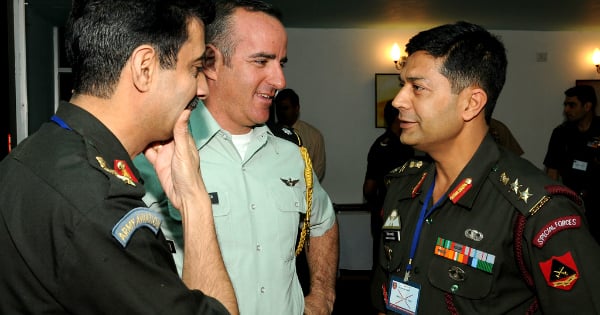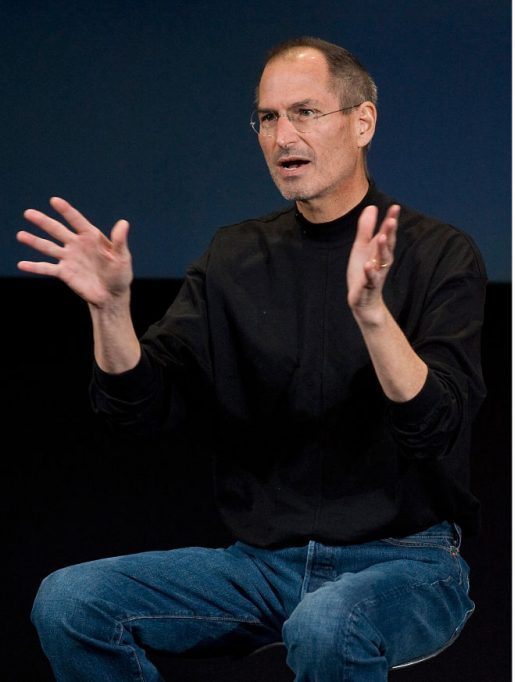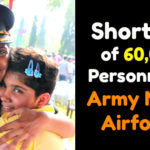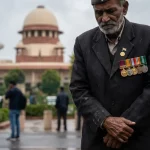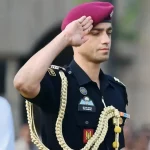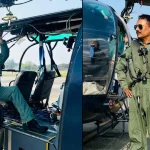Body language is the epitome of a perfect officer of the Armed Forces. Where words can’t speak, the body does and developing a positive body language for the same becomes a necessity. When assessed closely, the body language of a person tells much about them and about what kind of a person they are. This is, in particular, assessed in the Interview part of the selection process.
Not all are perfect, most of us feel nervous during certain tests and it’s a normal human behaviour, but re the forces only need confident officers. Thus, you have to overcome your nervousness, which can improve your body language during a personal interview because your non-verbal actions speak more about you.
Here we bring you the 7 body languages that you need to keep in mind during your SSB interview:
-
Standing Posture and Walking Manner:
The moment your interview starts or ends, you walk and take/leave your seat. This too indicates a lot about a candidate’s psychology. The amount of space occupied by the candidate, the manner of confident walking, all reflect that the candidate is confident. Candidates who assume a “power stance” for about two minutes feel more powerful and confident and tend to act that way. Sit straight, with hands on your thighs and walk like a boss.
-
Sitting Posture and Leg Movements:
Positioning the body with the torso leaning toward the interviewer, the arms at one’s sides, and the chest, abdomen, and lower body visible. This posture implies that the candidate is actively listening and interested in the interview. Few of the sitting postures and their meanings are:
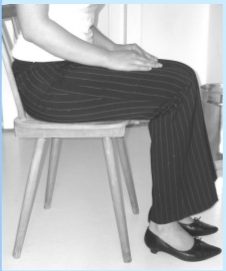
- Sitting Erect: Implies confidence
- Sitting Crossed Legs: Implies feeling insecure or being really very bold.
- Ankles Crossed: Implies openness and being down to earth.
- Arms Crossed: Defensive
- Hands on the Lap: Thoughtful
-
Hand Gestures:
Hand gestures are really a powerful aspect of communication. Hand gestures are really a powerful aspect of communication. Usually, our hand gestures complement our speech to convey a point. But nervous candidates start making unnecessary gestures for the same. The basic hand gestures and their meanings are:
- Hidden Hands: This displays the lack of trust between you and the interviewer.
- Open Hands and Palms at 45-degree: This is mostly seen in PM Modi’s speeches where it communicates that the speaker is being honest and open.
- Open Hands with Palms Facing Down: Indicates that the speaker is certain about what he is talking.
- Palms Facing Each Other with Fingers Together: Indicates expertise of what you are talking about.
- Hands Grasped, touching hair, neck, etc: Indicates nervousness.
Open Hand Gesture
-
Facial and Eye Expressions:
One can display 7 emotions through facial expressions – anger, contempt, disgust, fear, joy, sadness, and surprise. This mostly depends on the context and situation. You cannot smile if the interviewer says that he is feeling hungry. Maintaining eye contact plays a crucial role in the same. It is an important part of a good body language. Here’s a simple technique to improve eye contact: Whenever you meet the interviewer or someone else, look into his eyes long enough to notice what colour they are. But be careful, keeping too much eye-contact might creep people out. Giving no eye-contact might make you seem insecure.
-
Voice Modulation:
Voice modulation is very powerful body language that a candidate has while speaking. Not only does it reflect confidence but it also helps in convincing the person to whom you are speaking with. The few tips to have a good voice modulation is:
- Maintain Pitch: Lowering the voice slightly indicates that you are open and secure in front of the interviewer. Do not shout, neither do speak very slowly. If the interviewer asks you to repeat what you said, its time you raise your voice a little.
- Speak Slowly: Speaking slowly helps you to get your point. Also, it makes you clear on what you are speaking. A fast speech indicates nervousness.
- Stress on vocabulary: Your choice of words as a future commander has the ability to make peace or even declare a war. Use words wisely and choicefully.
-
Stray Movements, fidgeting and shifting positions:
This indicates nervousness. When you start fidgeting with your hair or pen, unnecessary movements and frequently adjusting yourself indicates that you are uncomfortable and nervous. If you really need to adjust, politely ask for interviewer’s permission and adjust yourself.
-
Fitness:
Becoming an armed forces officer, you are expected to have fitness in you. Your physical fitness should come only next to your mental fitness – no compromises. Start running, exercising and keep yourself physically fit. Meditate to maintain your physical fitness.
Conclusion:
Body language is an important aspect of communication in SSB interview. If you have a body language that indicates nervousness or shyness, improve it by using these techniques.
How to prepare for AFCAT 2018 Online

